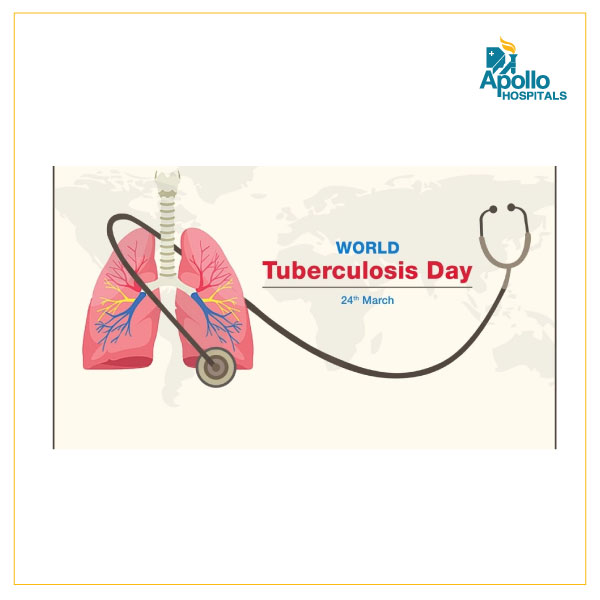How has Covid-19 affected individuals with Tuberculosis?
- 1028 Views
- Apollo Hospital Mumbai
- March 23, 2023
- COVID-19

Tuberculosis (TB) is a disease caused by Mycobacterium tuberculosis that primarily affects the lungs. Despite being a curable disease, it continues to be a major global health problem, especially among those living in low- and middle-income countries. The emergence of the COVID-19 pandemic has further complicated TB management and control efforts, posing a significant challenge to healthcare systems worldwide.
The COVID-19 pandemic has had a severe impact on the management and care of TB patients, particularly in regions where TB is endemic.
- Restrictions on travel, quarantine measures, and social distancing protocols have disrupted diagnosis, treatment, and care services, leading to a decrease in TB case detection and delays in initiating treatment. As a result, many individuals with TB remain undiagnosed, and those who have been diagnosed may experience delayed or interrupted treatment, escalating the risk of TB transmission, drug resistance, and mortality.
- Furthermore, individuals with both TB and COVID-19 face an increased risk of severe illness and death, especially those with comorbidities like diabetes, HIV, or malnutrition. Since the symptoms of TB and COVID-19 can overlap, it becomes challenging to differentiate between the two, leading to delays in diagnosis and treatment initiation.
- Moreover, COVID-19 has strained healthcare resources, leading to shortages of essential medicines, supplies, and diagnostics, further impacting TB care services. There has been a decline in TB drug supplies, resulting in a shortage of stocks, and increased prices, affecting the affordability and accessibility of TB treatment.
- The burden of caring for TB patients has largely fallen on families, who may lack the knowledge, skills, and resources to provide appropriate care.
- The pandemic’s economic impact has also affected TB care, with many families experiencing job loss, reduced income, and limited access to food and other essentials. This has led to nutritional deficiencies, making individuals more susceptible to TB infection and complications.
In conclusion, COVID-19 has significantly impacted individuals with TB, creating new challenges and exacerbating existing ones. Efforts to address the dual burden of TB and COVID-19 should be given priority, with scaled-up measures for TB prevention, diagnosis, and care, in addition to addressing the incomparable impact of COVID19 on socioeconomic factors. Urgent action is needed to ensure that individuals with TB continue to receive care and treatment, reduce TB transmission, and prevent morbidity and mortality.
- November 25, 2024
Multiple Sclerosis (MS): Early Detection and Treatment Matter
- November 25, 2024
Pediatric Kidney Disease: Causes, Symptoms, and Treatment
- November 25, 2024
Obstructive Sleep Apnea (OSA): What You Need to Know?
- November 25, 2024
What is Inflammatory Bowel Disease (IBD) and How Does it Affect You?
- November 25, 2024
How Can You Boost Your Immunity for Better Health?
- Bone Marrow Transplant3
- Cardiac sciences44
- Child Care7
- Clinical Excellence33
- Cosmetology2
- COVID-199
- Diseases4
- Emergency8
- Emergency10
- Endocrinology1
- ENT5
- Fetal Medicine1
- Gastroenterology7
- General Medicine10
- General Surgery3
- Genomic Medicine2
- Gynecology1
- Health14
- Hematology2
- Kidney Transplant5
- Kidney Transplant2
- Liver Transplant6
- Neonatology1
- Nephrology2
- Nephrology & transplant1
- Nephrology & Urology4
- Neurosciences1
- Neurosciences21
- Nutrition/Diet1
- Obstetrics & Gynecology9
- Obstetrics & Gynecology4
- Oncology92
- Oncology3
- Ophthalmology1
- Orthopedic13
- Patient Speak1
- Pediatric Surgery4
- physiotherapy2
- Psychologist2
- Pulmonology2
- Rheumatology1
- Robotic Suregry1
- Robotic Surgery11
- Spine1
- Uncategorized111
- Women Care5
